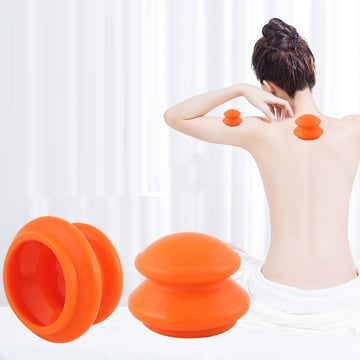Silicone for Medical Applications
Silicones are polymers made up of silicon, oxygen, carbon, and hydrogen atoms. Medical silicone is a sterilizable and biocompatible material used in various medical applications. Medical-grade silicone is extensively used in implantable and non-implantable medical devices such as catheters, respiratory devices, medical tubing, and gaskets due to its unique characteristics. There are different types of medical silicones available in the market.
Types of Medical Silicones
Liquid Silicone Rubber (LSR)
LSR is a type of medical grade silicone used to manufacture implantable medical devices such as pacemaker leads, artificial limbs, and intraocular lenses. LSR offers high flexibility, strength, and chemical resistance. It can easily conform to intricate designs and is a good choice for highly customized small components.
High Consistency Rubber (HCR) Silicone
HCR silicone, also known as room temperature vulcanized (RTV) silicone, is a versatile material used in implantable and non-implantable medical devices. It is used to make seals, gaskets, and other components that require a higher degree of hardness than LSR. HCR silicone can withstand extreme temperatures and is resistant to fluids like water, steam and most chemicals.
Adhesive Silicones
Medical-grade adhesive silicones are used in a broad range of applications, including wound closures, medical tapes, and wound dressings. These silicones provide excellent adhesion to human skin with an additional layer of a stabilizing component. They offer different degrees of adhesion strength and can be removed without causing skin damage.
Gels
Medical silicone gels offer high elasticity and are ideal for cushioning and shock absorption applications. They are used in prosthetic devices to impart shape, softness, and a natural feel. Silicone gels can also be used in medical electronics, like ECG machines and implants, due to their high resistance to shock and vibration.
Coatings
Silicone coatings offer a smooth and lubricious surface for medical devices. It can be applied to medical tubing, catheters, and other devices to reduce friction. The coating can also be used as a barrier layer to prevent device components from coming in contact with bodily fluids.
Injection Molded Silicones
Injection-molded silicones are widely used to manufacture medical components in large quantities. They are used for making complex geometries parts such as valve components, fluid handling components, and other components with intricate shapes. The process of injection molding allows for the production of high-quality products with consistent dimensions and minimal variability.
Fluorosilicone
Fluorosilicone is a type of silicone that possesses increased resistance. Fluorinated silicone materials exhibit much-improved stability to the attack from harsh chemicals or even fuels, and exhibit improved resistance to abrasion. They are commonly found in jet fuel systems, gasoline systems, among others.
Antimicrobial Silicones
Antimicrobial silicones contain active ingredients that prevent the growth of harmful bacteria, fungi, and viruses on the surface of medical devices. These silicones are ideal for in-home healthcare devices and other medical instruments that require frequent handling. Antimicrobial silicone is used in the medical industry to help reduce the incidence of healthcare-associated infections.
Drug-Eluting Silicones
Drug-eluting silicone is coated with a specially formulated drug that slowly releases over time. It is used to deliver a variety of drugs directly to the site of the disease or ease pain. Drug-eluting silicones are used in cardiac implants, drug delivery devices, and other implantable devices to offer localized drug therapy.
Implantable Silicones
Implantable silicones are specifically formulated to be implanted in the human body for extended periods of time without harming the body. They are used in a variety of medical applications, including pacemakers, breast implants, and cochlear implants. These silicones are highly biocompatible and do not cause any adverse reactions in the body.
Conclusion
Medical-grade silicone is a versatile material that has a variety of medical uses. The different types of medical silicones have unique properties that make them ideal for various applications. Silicone continues to be an essential material for medical device applications, and innovations in advanced silicone technology will undoubtedly lead to even broader applications in medical devices.
Quote Inquiry
Contact us

